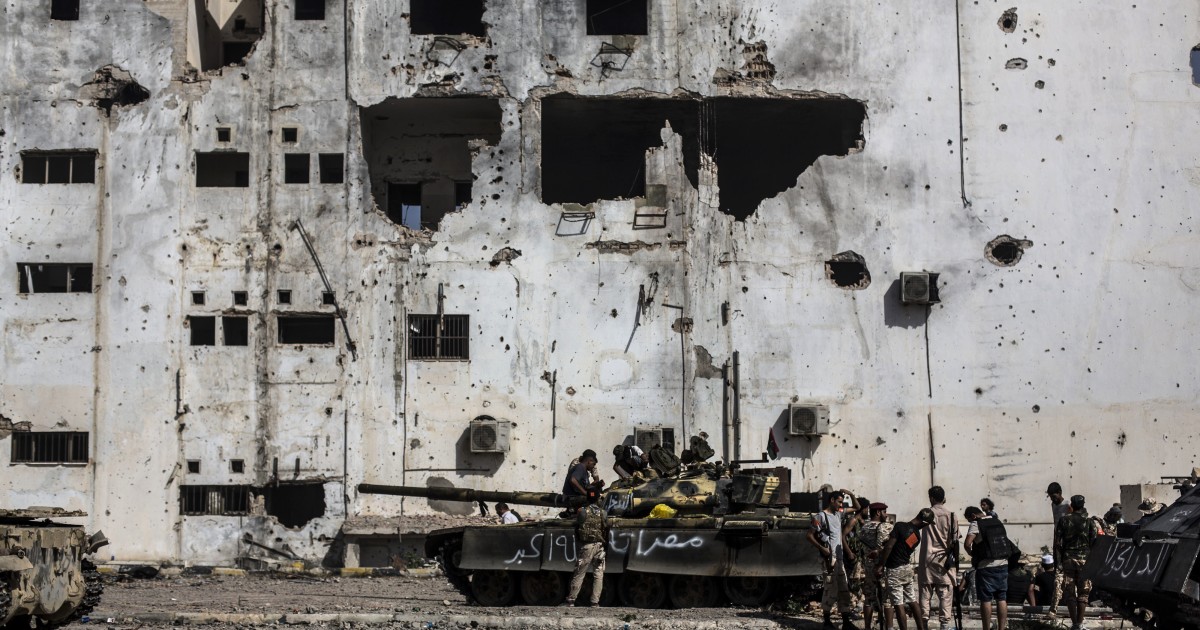The rival sides in Libya’s civil war signed a permanent cease-fire Friday, a deal the United Nations billed as historic after years of fighting that has split the North African country in two. But skepticism over whether the agreement would hold began emerging almost immediately.
The breakthrough, which among other things orders foreign mercenaries out of the country within three months, sets the stage for political talks in November to find a lasting solution to the chaos unleashed after a 2011 NATO-backed uprising toppled and killed longtime dictator Moammar Kadafi.
Previous diplomatic initiatives to end the war have repeatedly collapsed. The U.N.-brokered deal aims to cement a months-long lull in fighting and boost the political process.
“I am honored to be among you today to witness a moment that will go down in history,” said Stephanie Turco Williams, the top U.N. envoy for Libya, who led mediation talks this week in Geneva. She expressed some caution, however, noting that a “long and difficult” road lies ahead.
It’s not clear how the cease-fire will be enforced, given the patchwork of militias in Libya, but Williams said armed groups and military units had agreed to return “to their camps” and that the deal would take effect immediately.
Foreign mercenaries will depart “from all Libyan territories, land, air and sea” within three months, she added, referring to the thousands of Syrian fighters deployed by Turkey and Russia on opposite sides of the war. The agreement also involved the formation of a joint military force and a mechanism to monitor violations, Williams said, and will be sent to the U.N. Security Council.
To maintain the cease-fire, the two sides agreed to establish a “joint police operations room” that will help secure areas following the withdrawal of armed groups. The rivals also agreed to form a “joint limited military force” of personnel who report to the U.N.’s Joint Military Commission.
But shortly after the announcement of the deal, Turkish President Recep Tayyip Erdogan said it did not appear credible, even as he expressed hope that all parties would stick to it.
Erdogan said the cease-fire decision did not come from top officials but from lower-level ones. “Time will show how long it will last,” he said.
Following Libya’s descent into chaos, a U.N.-recognized government holds sway in the capital, Tripoli, in western Libya, while the forces of military commander Khalifa Hifter run most of the east and south. Turkey is the main patron of the Tripoli government, while the United Arab Emirates, Russia and Egypt back Hifter.
Both sides are also supported by an array of fractious militias, though the administrations often struggle to control them. In much of the country, heavily armed militias hold sway and have repeatedly undermined cease-fire attempts.
Ali Abushahma, a field commander for the administration in Tripoli and the head of its delegation, said: “We have had enough suffering, enough bloodshed.
“I appeal to all Libya: Be one hand,” he said, warning of polarization by factions.
Amraja Alamami, the head of Hifter’s delegation, pledged in a short speech to “implement what had been agreed upon in Geneva.”
The meetings this week mark the fourth round of talks involving the Joint Military Commission under Williams’ watch. The Geneva-based talks come ahead of a political forum in Tunisia in November. That gathering will aim to “generate consensus on a unified governance framework and arrangements that will lead to the holding of national elections,” the U.N. mission said.
Friday’s deal follows a series of breakthroughs since fighting came to a halt in June, when Hifter’s 14-month campaign to capture Tripoli collapsed.
International pressure has been building on the parties to avert a battle over the strategic city of Surt, the gateway to Libya’s major oil export terminals. This fall, Hifter and allied eastern tribes announced the end of a months-long blockade of Libya’s oil facilities, initially imposed to protest alleged corruption in the oil sector and unfair distribution of revenues to the east. Last month, the two sides reached preliminary agreements to exchange prisoners and open up air and land transit across the country’s divided territory,
On Friday, Williams said that a passenger plane flew from Tripoli to Benghazi, in the east, for the first time in months, paving the way for regular flights between eastern and western Libya. In another sign of progress, she said the key oil ports of Ras Lanuf and Al Sidr would soon resume production.
Libya’s prized light crude has long been a key factor in the country’s civil war, with rival militias and foreign powers jostling for control of Africa’s largest oil reserves.



